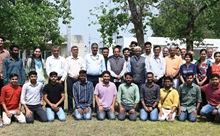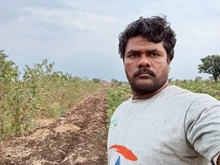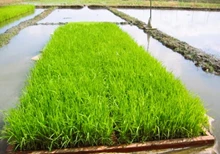
The rising cost of fuel- diesel and kerosene- has hampered Kerala's traditional and mechanised fisheries sector's daily operations. According to Joseph Xavier Kalapurackal, general secretary of the All Kerala Fishing Boat Owners Association, diesel prices have risen by Rs. 10 per litre in the last six months, forcing many boat owners to scale back their operations in Cochin Harbour.
The fact that the catch is dwindling as a result of global warming is adding to their problems. Fuel alone costs a total of Rs 1.5 lakh for a three-day fishing trip at 1,500 litres. The boat operator will have to spend an additional Rs 25,000 on ice, wages, and other expenses. Because of the lower catch in territorial waters, operators are forced to go deeper into the seas, which requires 3,000 more litres of fuel.
The operations are finding it difficult to raise additional funds due to the business slump and rising debt. According to Kalapurackal, the Tamil Nadu government has extended fuel subsidies to fishing boats, but the Kerala government has yet to do so.
He questioned why fishing boats, which only operate on the water, were subjected to a road toll.
The traditional fishing sector has been hit hard by frequent kerosene price hikes and the reduction in supply of subsidised kerosene to 26,000 kilolitres for three months from 28,000 kilolitres, according to Charles George, president of Kerala Matsya Thozhilali Aikya Vedi. The open market price is Rs 125 per litre, compared to a subsidised rate of Rs 80.
He compared this to the unrestricted supply of subsidized kerosene to Tamil Nadu's traditional fishing industry. Because of the lower catch in coastal waters from January to May, traditional fishing communities have been forced to go deeper into the seas, increasing their fuel consumption.
The association wants Kerala's government to ask the federal government to restore a steady supply of kerosene at low prices for the traditional fishing industry.
"There has already been a raw material shortage for the seafood sector as a result of a number of factors, and the current move by boat owners will exacerbate the availability of wild-caught varieties from the west coast," said Alex K Ninan, president of the Seafood Exporters Association of India-Kerala Region. He went on to say that the development comes at a time when post-Covid demand for marine products is surging in a number of international destinations.
Furthermore, the closure of several Chinese ports has disrupted shipping schedules and exacerbated the container shortage. High freight costs and congestion at Colombo Port, he said, have added to the woes of seafood exporters.
Stay tuned with KJ for more Agri News!!











